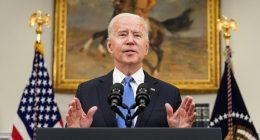Taxpayers lost out, and consumers have paid through the nose ever since. This failed regime is long past its sell-by date
- Jonathan Portes is professor of economics and public policy at King’s College London and a former senior civil servant
“You could be an H2Owner.” That was the slogan, to the sound of Handel’s Water Music, of the 1989 campaign to sell shares in the 10 water and sewage companies of England and Wales – not quite as memorable as British Gas’s earlier “Tell Sid” campaign, but almost as successful. Although water privatisation was extremely unpopular, with every poll showing that a substantial majority of people were opposed to the policy, that didn’t stop more than 2.5 million people applying for shares. The offer was nearly six times oversubscribed.
The only surprise is that it wasn’t much more. Long before anyone talked about “magic money trees”, the Thatcher government offered one: this was free money to anyone who filled in the application form. The average gain to investors on the first day of trading was 40%, and over the next two decades the privatised water companies paid more than £57bn in dividends, at the same time as running up large amounts of debt, the interest on which is effectively paid for by customers.
Jonathan Portes is professor of economics and public policy at King’s College London and a former senior civil servant



